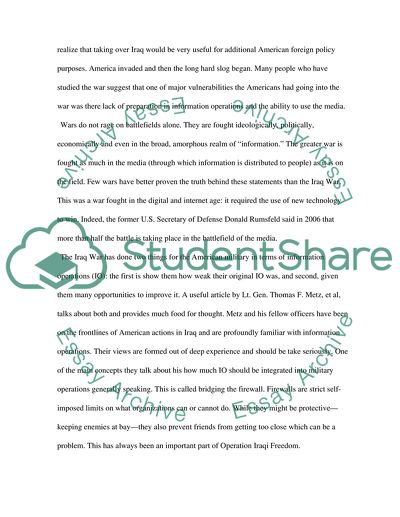Cite this document
(Operation Iraqi Freedom Research Paper Example | Topics and Well Written Essays - 1750 words - 1, n.d.)
Operation Iraqi Freedom Research Paper Example | Topics and Well Written Essays - 1750 words - 1. Retrieved from https://studentshare.org/politics/1745191-operation-iraqi-freedom
Operation Iraqi Freedom Research Paper Example | Topics and Well Written Essays - 1750 words - 1. Retrieved from https://studentshare.org/politics/1745191-operation-iraqi-freedom
(Operation Iraqi Freedom Research Paper Example | Topics and Well Written Essays - 1750 Words - 1)
Operation Iraqi Freedom Research Paper Example | Topics and Well Written Essays - 1750 Words - 1. https://studentshare.org/politics/1745191-operation-iraqi-freedom.
Operation Iraqi Freedom Research Paper Example | Topics and Well Written Essays - 1750 Words - 1. https://studentshare.org/politics/1745191-operation-iraqi-freedom.
“Operation Iraqi Freedom Research Paper Example | Topics and Well Written Essays - 1750 Words - 1”, n.d. https://studentshare.org/politics/1745191-operation-iraqi-freedom.


